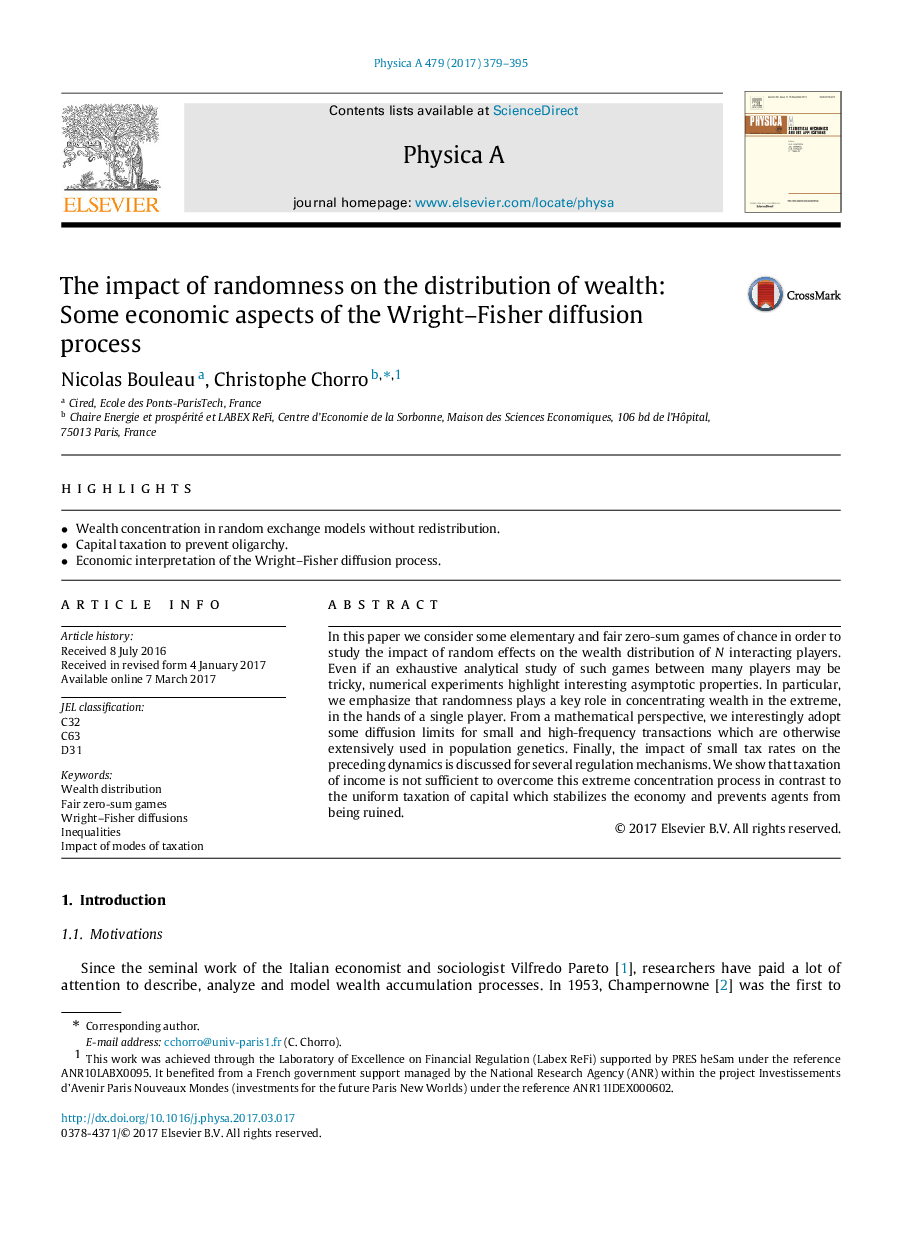| Article ID | Journal | Published Year | Pages | File Type |
|---|---|---|---|---|
| 5103003 | Physica A: Statistical Mechanics and its Applications | 2017 | 17 Pages |
Abstract
In this paper we consider some elementary and fair zero-sum games of chance in order to study the impact of random effects on the wealth distribution of N interacting players. Even if an exhaustive analytical study of such games between many players may be tricky, numerical experiments highlight interesting asymptotic properties. In particular, we emphasize that randomness plays a key role in concentrating wealth in the extreme, in the hands of a single player. From a mathematical perspective, we interestingly adopt some diffusion limits for small and high-frequency transactions which are otherwise extensively used in population genetics. Finally, the impact of small tax rates on the preceding dynamics is discussed for several regulation mechanisms. We show that taxation of income is not sufficient to overcome this extreme concentration process in contrast to the uniform taxation of capital which stabilizes the economy and prevents agents from being ruined.
Related Topics
Physical Sciences and Engineering
Mathematics
Mathematical Physics
Authors
Nicolas Bouleau, Christophe Chorro,
